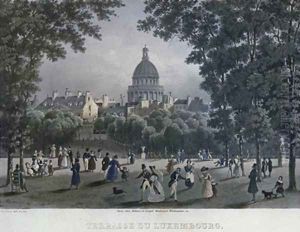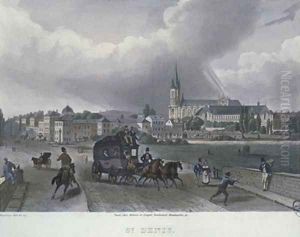Frederic Martens Paintings
Friedrich von Martens, also known as Frederic Martens in the anglicized version of his name, was not an artist in the traditional sense of painters or sculptors, but rather a distinguished legal scholar, diplomat, and a key figure in the development of international law. Born in 1806 in Pärnu, then part of the Russian Empire and now in Estonia, Martens grew up during a period of significant political and social changes in Europe. His contributions to international law and diplomacy, rather than visual arts, have left a lasting legacy.
Martens' career is most notable for his work in the field of international law. He was a professor of international law at the University of St. Petersburg and served as a legal advisor to the Russian foreign ministry. His expertise and contributions were recognized internationally, and he played a significant role in various diplomatic conferences and negotiations. Martens is perhaps best remembered for the 'Martens Clause', a provision he proposed during the 1899 Hague Peace Conference. This clause, which has been incorporated into many international humanitarian law treaties, asserts that in cases not covered by specific legal agreements, civilians and combatants remain under the protection and authority of the principles of international law derived from established custom, from the principles of humanity, and from the dictates of public conscience.
Throughout his career, Martens authored several influential works on international law, including his comprehensive collection 'Recueil des traités' which compiled major international treaties of the 19th century. His writings and legal thought have influenced generations of legal scholars and practitioners in the field of international law.
Martens passed away in 1885, but his legacy endures through his contributions to international legal theory and practice. His work laid foundational principles that continue to influence the conduct of states and international organizations. Although not an artist in the traditional sense, Frederic Martens' life and work were marked by creativity, a deep commitment to the principles of justice and humanity, and a lasting impact on the world stage.

